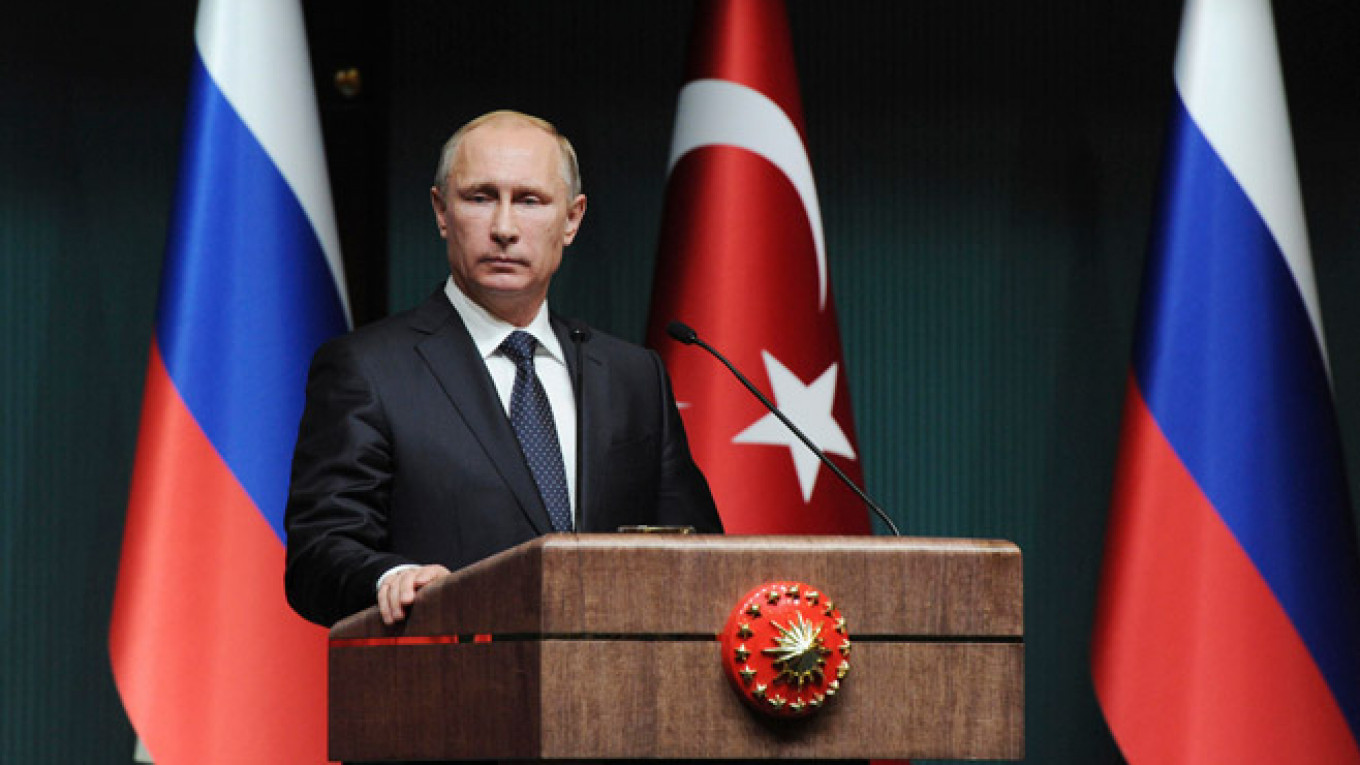Russia’s new plan to build a gas pipeline to Europe through Turkey won’t work, the European Union’s energy chief said.
In an interview with The Wall Street Journal late last week, Maros Sefcovic said the proposed pipeline — which Russia says would have a capacity of 63 billion cubic meters a year — exceeds demand from Turkey, southeastern Europe and other possible customers.
“A first assessment is that this would not work,” Sefcovic told the paper.
Russia has trumpeted the so-called Turkish Stream project as a sure thing, even as both Turkey and the EU remain skeptical.
The project is meant to replace the long-planned South Stream pipeline, which was to bypass Ukraine and enter the EU via Bulgaria. President Vladimir Putin unexpectedly announced in December that South Stream would be cancelled following clashes with the EU over the project.
Gazprom CEO Alexei Miller this month said the EU should begin building a pipeline to Turkish Stream's terminus at the Turkish border “today” so as to receive Russian gas past 2019, when Russia’s gas transit contract with Ukraine expires.
Sefcovic appeared unimpressed by the ultimatum. “I believe the Russians will have to look at this option again and come up with a viable economic solution that’s also acceptable to the European partners,” he said in the interview, which was published on Thursday.
Analysts polled by The Moscow Times earlier this week said Russia’s bravado is premature and its bargaining position weak, as the European Union is already actively working to diversify its energy imports.
“We are tired of being worried every summer if we would have enough energy in the winter,” Sefcovic said. “The biggest economy in the world shouldn’t have such a worry.”
A Message from The Moscow Times:
Dear readers,
We are facing unprecedented challenges. Russia's Prosecutor General's Office has designated The Moscow Times as an "undesirable" organization, criminalizing our work and putting our staff at risk of prosecution. This follows our earlier unjust labeling as a "foreign agent."
These actions are direct attempts to silence independent journalism in Russia. The authorities claim our work "discredits the decisions of the Russian leadership." We see things differently: we strive to provide accurate, unbiased reporting on Russia.
We, the journalists of The Moscow Times, refuse to be silenced. But to continue our work, we need your help.
Your support, no matter how small, makes a world of difference. If you can, please support us monthly starting from just $2. It's quick to set up, and every contribution makes a significant impact.
By supporting The Moscow Times, you're defending open, independent journalism in the face of repression. Thank you for standing with us.
Remind me later.


